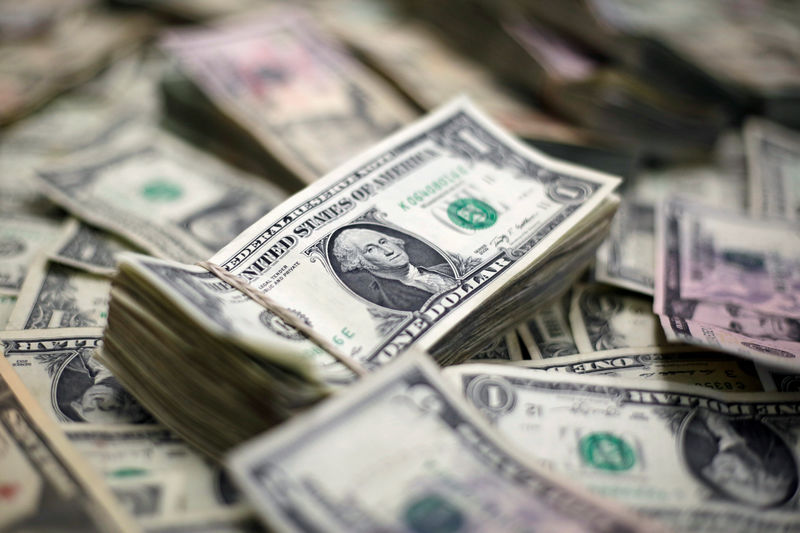By Ambar Warrick
Investing.com -- Most Asian currencies retreated on Monday, while the dollar steadied ahead of a string of economic cues due this week, with the Federal Reserve’s May meeting also coming into focus as markets braced for more interest rate hikes.
The dollar index and dollar index futures traded sideways on Monday after logging some gains last week, as a slew of Fed officials called for higher interest rates to curb inflation.
Focus this week is on the impact of said rate hikes on the U.S. economy, with first-quarter GDP data due on Thursday. The reading is expected to show that growth slowed from the prior quarter.
The PCE price index - the Fed’s preferred inflation gauge - is also due later this week, and is expected to show that inflation remained stubborn through March.
Relatively high inflation is expected to elicit an at least 25 basis point (bps) rate hike by the Fed, when it meets next week. Markets are pricing in a nearly 90% chance of such a hike, with a small possibility for a similar 25 bps hike in June.
The prospect of rising interest rates weighed on most Asian currencies. The Japanese yen fell 0.2% on Monday, with markets awaiting more cues on Japanese inflation due this week.
But the main point of focus for the yen is a Bank of Japan policy meeting on Friday - the first under new Governor Kazuo Ueda. Ueda is expected to maintain the bank’s ultra-loose policy for now, but could provide cues on an eventual plan to tighten, especially as inflation remains stubborn.
The South Korean won lost 0.4% ahead of first quarter GDP data on Tuesday, which is expected to show that growth remains dismal in the East Asian economy.
The Chinese yuan fell 0.2% to 6.9038 against the dollar, coming close to the key 7 level amid growing doubts over the scope of an economic recovery in the country this year. The Australian dollar lost 0.3% ahead of more signals on inflation due this week, as well as a Reserve Bank meeting in early-May.
Uncertainty over a Chinese economic recovery has also dented sentiment towards Asia in recent weeks.
The Indian rupee fell slightly, but was sitting on some gains from Friday after data showed that India’s foreign exchange reserves rose to an over nine-month high in the second week of April.
Still, the prospect of rising U.S. interest rates bodes poorly for Asian currencies, as the gap between risky and low-risk yields narrows.
